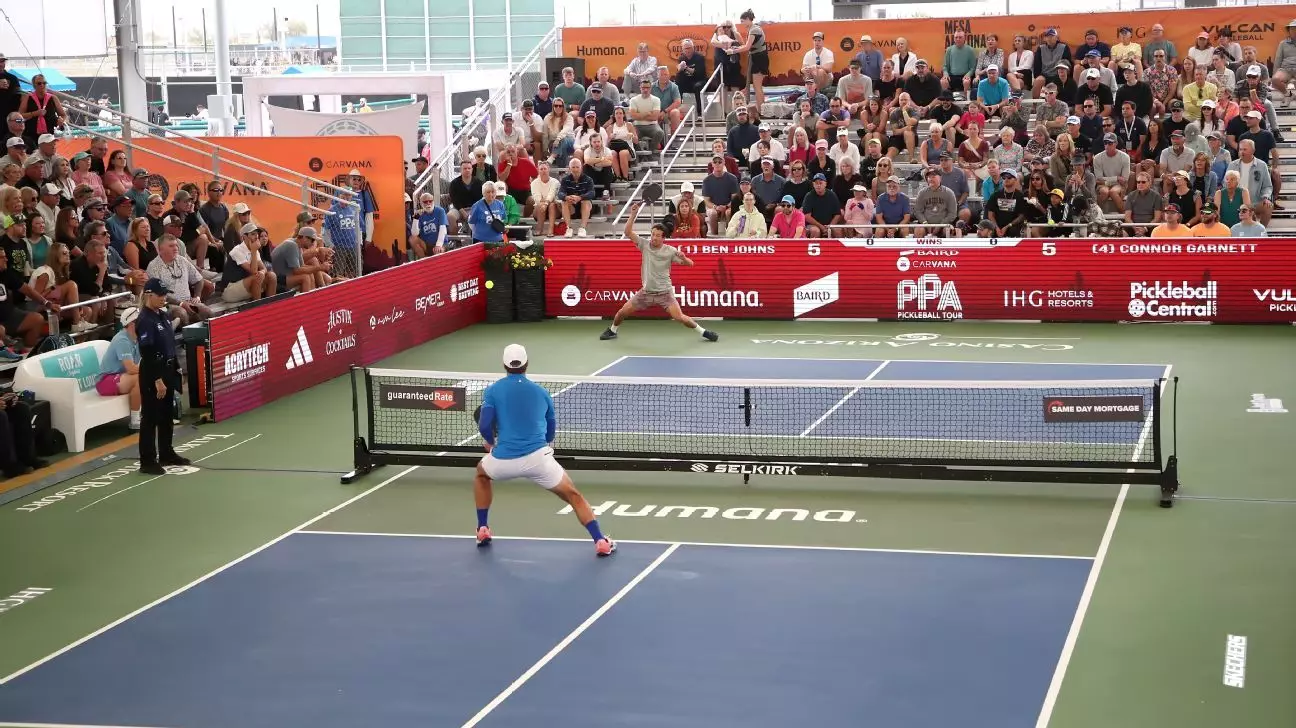The formation of the World Pickleball Players Association (WPPA) signals a transformative moment for the sport. Traditionally, professional players have found themselves at the mercy of leagues and tournament organizers, often limited in voice and influence. The emergence of a dedicated player-centric organization fundamentally challenges this dynamic, prioritizing athlete empowerment and establishing a framework where players can advocate for their rights and needs confidently. This shift echoes broader trends in sports where players are increasingly asserting their independence, demanding transparency, and seeking equitable treatment. The WPPA’s inception is not merely a response to existing frustrations but a declaration that players should be active architects of their profession’s future, rather than passive participants dictated from the top down.
Significance of a Collective Player Voice
One of the most compelling aspects of this initiative is its emphasis on unification. Until now, isolated efforts such as tour-sponsored councils have struggled to bring about substantive change. These previous attempts often lacked independence and authority, rendering them ineffective in addressing systemic issues. The WPPA introduces a robust structure—a seven-member board of players—that aims to establish common standards across the board. From safety protocols to fair compensation and transparent rankings, the association seeks to instill a sense of consistency and fairness within the sport. This collective voice doesn’t just represent grievances; it becomes a catalyst for tangible policies that elevate the sport’s professionalism and integrity.
The fact that players view the WPPA as a non-antagonistic entity is noteworthy. Collin Johns’ assertion that the association isn’t inherently adversarial with existing tours demonstrates a strategic approach—collaborative rather than confrontational. This attitude recognizes that growth and progress in pickleball depend on mutual respect and cooperation, not conflict. By setting minimum standards and pushing for equitable treatment, the WPPA seeks to foster a healthier environment where top-ranked players and newcomers alike can thrive without feeling marginalized.
Building on Past Lessons and Industry Support
The genesis of the WPPA owes much to the lessons learned from other sports unionization efforts. Harry Marino’s experience with Sports Solidarity, which successfully organized minor league baseball players, has provided a valuable blueprint. His perspective highlights a vital understanding: player organizations should prioritize advocacy, community, and sport longevity over monetary gain. This ethos aligns perfectly with pickleball’s rapid rise—its popularity isn’t just a fleeting trend but a movement that deserves sustainable, player-informed governance.
The support from the Professional Tennis Players Association (PTPA) underscores the importance of independent athlete representation. It’s hard to ignore the parallels—players in tennis and pickleball are striving for autonomy in a landscape often dominated by organizers and commercial interests. These associations symbolize a collective push to redefine athlete rights, ensuring their voices are heard and respected. As pickleball continues to expand, this endorsement signifies a broader recognition: athletes’ well-being and agency are fundamental for the sport’s credibility, growth, and integrity.
Potential Impact on the Sport’s Evolution
The issues on the table—ranking systems, safety, scheduling, and discipline—are not trivial; they are foundational to the professional experience. The current ranking system, for example, often leaves players frustrated, feeling undervalued or overlooked. Reworking such structures under the guidance of an independent athletes’ body could bring fairness, transparency, and meritocracy. Similarly, safety concerns, which are paramount as the sport grows more competitive and fast-paced, demand consistent policies that prioritize player health.
Moreover, the establishment of the WPPA signals a nuanced understanding: empowering players will ultimately benefit the sport’s development. When athletes feel valued and protected, they are more motivated, experimental, and invested in elevating pickleball’s profile. This bottom-up approach aligns with best practices in sports management, emphasizing athlete welfare as a catalyst for long-term sustainability. While the association is still in its early stages, its potential to influence policies, foster better communication between players and organizers, and set industry standards cannot be overstated.
This movement may very well redefine what it means to be a professional in pickleball. It affirms that players are not just commodities or performers; they are vital stakeholders, deserving of a voice and agency. As the sport’s popularity surges, so too must its governance evolve—becoming more inclusive, fair, and transparent, driven by its most critical participants: the athletes themselves.


Leave a Reply